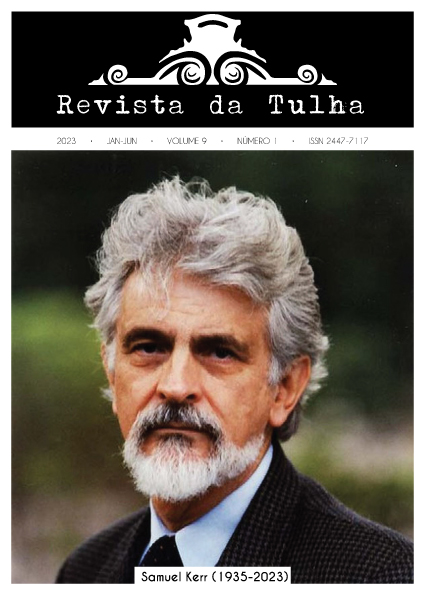To read or not to read: is that the question?
DOI:
https://doi.org/10.11606/issn.2447-7117.rt.2023.207156Keywords:
Music notation, Sign, Music education, Child developmentAbstract
This essay discusses the teaching and learning of conventional music notation. Taking as a starting point some positions of scholars in the area about the importance or not of considering musical writing as a necessary knowledge, it deepens the arguments presented. In order to reach some conclusions, even if provisional, the text is conducted through two central questions: 1- What is the effective role of music notation for music and music education? 2- How can we think about learning of music notation from the development point of view? Taking the Bakhtin Circle's philosophy of culture and Vygotsky's historical cultural psychology as theoretical bases, it raises and analyzes some isses that may serve as guidelines for organizing the pedagogical work. Among the highlighted conclusions, we have: the notion that conventional notation plays a role beyond recording sounds and allows an analytical approach to music; the limits of writing not only for music from oral tradition, but for European concert music itself; the importance of practical musical experiences in the child's acquisition of notations; the different musical records in the course of psychic development. The final considerations point to the fact that the defense or not of music notation teaching only makes sense when analyzing the contextual teaching situations as a whole.
Downloads
References
ABREU, Thiago Xavier; DUARTE, Newton. “A notação musical e a relação consciente com a música: elementos para refletir sobre a importância da notação como conteúdo escolar”. Revista da ABEM, v. 28, 65-80, 2020. http://www.abemeducacaomusical.com.br/revistas/revistaabem/index.php/revistaabem/article/view/862 (acesso: 23/01/2023)
BAKHTIN, Mikhail. “O problema do texto”. In BAKHTIN, Mikhail. Estética da criação verbal. 3. Ed. São Paulo, Martins Fontes, 327-358
BAMBERGER, Jeanne. “As estruturações cognitivas da apreensão e da notação de ritmos simples”. In SINCLAIR, Hermine (Org.). A produção de notações nas crianças: linguagem, número, ritmos e melodias. São Paulo, Cortez: Editores Associados, 1990. 97-124
BARBOSA, Maria Flávia Silveira. Processos de significação da escrita rítmica pela criança. 2001. Dissertação (Mestrado em Educação) – Universidade Estadual de Campinas, Campinas. https://repositorio.unicamp.br/acervo/detalhe/205195 (acesso: 23/01/2023)
BURCET, María Inés. “Hacia una epistemología decolonial de la notación musical”. Revista Internacional de educación musical, n. 5, 129-137, 2017. https://www.revistaeducacionmusical.org/index.php/rem1/article/view/122 (acesso: 23/01/2023)
DEMICIO, Mauro Sérgio; LUZ, Marcel Caires; ARENA, Dagoberto Buim. “Leitura de partitura musical e leitura de linguagem verbal escrita: convergências e divergências”. Revista Música Hodie, v. 20, 2020. https://revistas.ufg.br/musica/article/view/60024 (acesso em 23/01/2023)
LURIA, Alexander Romanovich. “O desenvolvimento da escrita na criança”. In VIGOTSKII, Lev, Semenovich; LURIA, Alexander Romanovich; LEONTIEV, Alexis. Linguagem, desenvolvimento e aprendizagem. São Paulo, Ícone: Editora da USP, 1998.
MARIANI, Silvana. “Émile Jaques-Dalcroze: A música e o movimento”. In MATEIRO, Teresa; ILARI, Beatriz (Org.). Pedagogias em educação musical. Curitiba, Ibpex, 2011. 25-54
PAREJO, Enny. “Edgar Willems: Um pioneiro da educação musical”. In MATEIRO, Teresa; ILARI, Beatriz (Org.). Pedagogias em educação musical. Curitiba, Ibpex, 2011. 89-123
PEIRCE, Charles Sanders. Semiótica. São Paulo, Perspectiva, 1977.
PENNA, Maura. “O ensino de música para além das fronteiras do conservatório”. In PEREGRINO, Iara Rosas et al. Da camiseta ao museu: o ensino das artes na democratização da cultura. João Pessoa, Editora Universitária/UFPB, 1995. 129-140
PENNA, Maura. Música(s) e seu ensino. Porto Alegre, Sulina, 2008.
PEREIRA, Marcus Vinícius Medeiros. “Licenciatura em Música e habitus conservatorial: analisando o currículo”. Revista da ABEM, v. 22, n. 32, 90-103, jan jun 2014. http://www.abemeducacaomusical.com.br/revistas/revistaabem/index.php/revistaabem/article/view/464 (acesso: 23/01/2023)
PONZIO, Augusto. “Bakhtin e Peirce: signo, interpretação e compreensão” In PONZIO, Augusto. A revolução bakhtiniana. São Paulo, Contexto, 2008. 161-168
QUEIROZ, Luis Ricardo da Silva. “Traços de colonialidade na educação superior em música no Brasil: análises a partir de uma trajetória de epistemicídios musicais e exclusões”. Revista da ABEM, Londrina, v. 25, n. 39, 132-159, jul dez, 2017.
http://www.abemeducacaomusical.com.br/revistas/revistaabem/index.php/revistaabem/article/view/726 (acesso: 23/01/2023)
SCHAFER, Murray. “O rinoceronte na sala de aula”. In SCHAFER, Murray. O ouvido pensante. São Paulo, Editora Universidade Estadual Paulista, 1991. 276-341
SERRATI, Pablo. “Cuestionar la colonialidad en la educación musical”. Revista Internacional de educación musical, n. 5, 93-100, 2017. https://www.revistaeducacionmusical.org/index.php/rem1/article/view/123 (acesso: 23/01/2023)
SHIFRES, Favio; GONNET, Daniel. “Problematizando la herencia colonial en la educación musical”. Epistemus, v. 3, n. 2, 51-67, 2015. https://revistas.unlp.edu.ar/Epistemus/article/view/2971 (acesso em: 23/01/2023)
SMOLKA, Ana Luiza Bustamante. A criança na fase inicial da escrita: a alfabetização como processo discursivo. 9 Ed. Campinas, Editora da Unicamp, 2000.
SWANWICK, Keith. Ensinando música musicalmente. São Paulo, Moderna, 2003.
HOLGUÍN, Pilar Jovanna. “La música desde el Punto Cero: la colonialidad del la teoría y el análisis musical en la universidad”. Revista Internacional de educación musical, n. 5, 149-155, 2017. https://www.revistaeducacionmusical.org/index.php/rem1/article/view/136 (acesso em: 23/01/2023)
VIGOTSKI, Lev Semionovich. Psicologia, educação e desenvolvimento: escritos de L. S. Vigotski. São Paulo, Expressão Popular, 2021.
VOLÓSHINOV, Valentin. Marxismo e filosofía da linguagem: problemas fundamentais do método sociológico na ciência da linguagem. São Paulo, editor 34, 2017.
ZAMPRONHA, Edson S. Notação, representação e composição: um novo paradigma da escritura musical. São Paulo, Annablume/Fapesp, 2000.
Downloads
Published
Issue
Section
License
Copyright (c) 2023 Silvia Cordeiro Nassif

This work is licensed under a Creative Commons Attribution 4.0 International License.
Authors retain copyright and grant the journal the right to first publication, with the work licensed under the Creative Commons Attribution License CC-BY-NC:
This work is licensed under a Creative Commons Attribution 4.0 International License.



